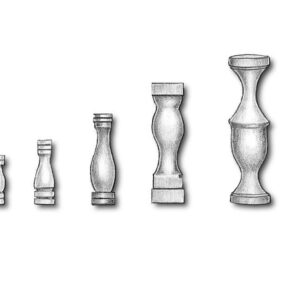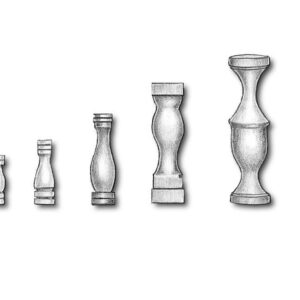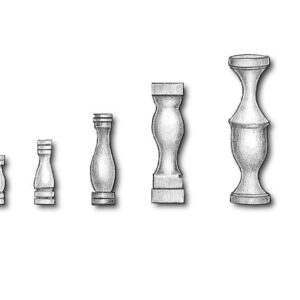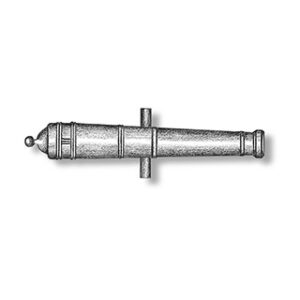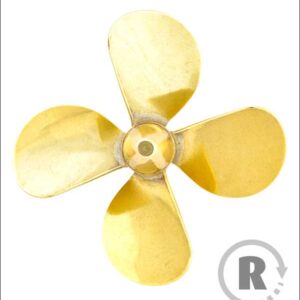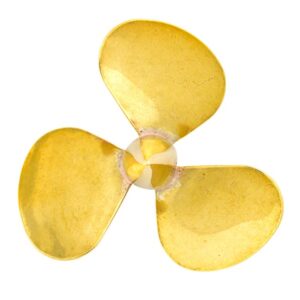Life Rings, Davits, Stanchions, Boom and Gaff Jaws, Propellers, Bells, Barrels
- Out of Stock
- Read more
- $0.14
Boxwood Stanchions 6mm
- Out of Stock
- Read more
- $1.51
Brass Cannon Barrels 45mm
Boom and gaff jaws are used to secure the ship’s sails and rigging. These jaws, typically made of metal, are attached to the mast and provide a strong holding point for the ropes and lines that control the sails. They are essential for maneuvering the ship and ensuring the sails are properly trimmed for optimal performance.
Propellers are arguably one of the most important components of a ship’s propulsion system. These rotating blades, usually made of metal, are responsible for propelling the ship through the water. The size and design of the propellers depend on the size and type of the ship, and they are regularly inspected and maintained to ensure efficient operation.
Bells have been used on ships for centuries as a means of communication. These large, metal bells are rung to signal different events, such as shift changes, meal times, and emergencies. They are also used in foggy conditions to warn other ships of the ship’s presence. Bells are an important part of ship tradition and are still used in modern ships.
Barrels, specifically oil barrels, have been used on ships to store and transport oil and other liquids. These cylindrical containers, usually made of metal, are securely fastened to the ship’s deck to prevent them from moving during rough sea conditions. Barrels are also used to store fresh water and other supplies on long voyages.
In conclusion, Life Rings Davits Stanchions Boom and Gaff Jaws Propellers Bells Barrels may seem insignificant, but they all play a vital role in the safety, navigation, and operation of the vessel. They are regularly inspected and maintained to ensure the safety and efficiency of the ship and its crew. From life-saving devices to communication tools and storage containers, each element serves a unique purpose in the complex world of ship operations.

